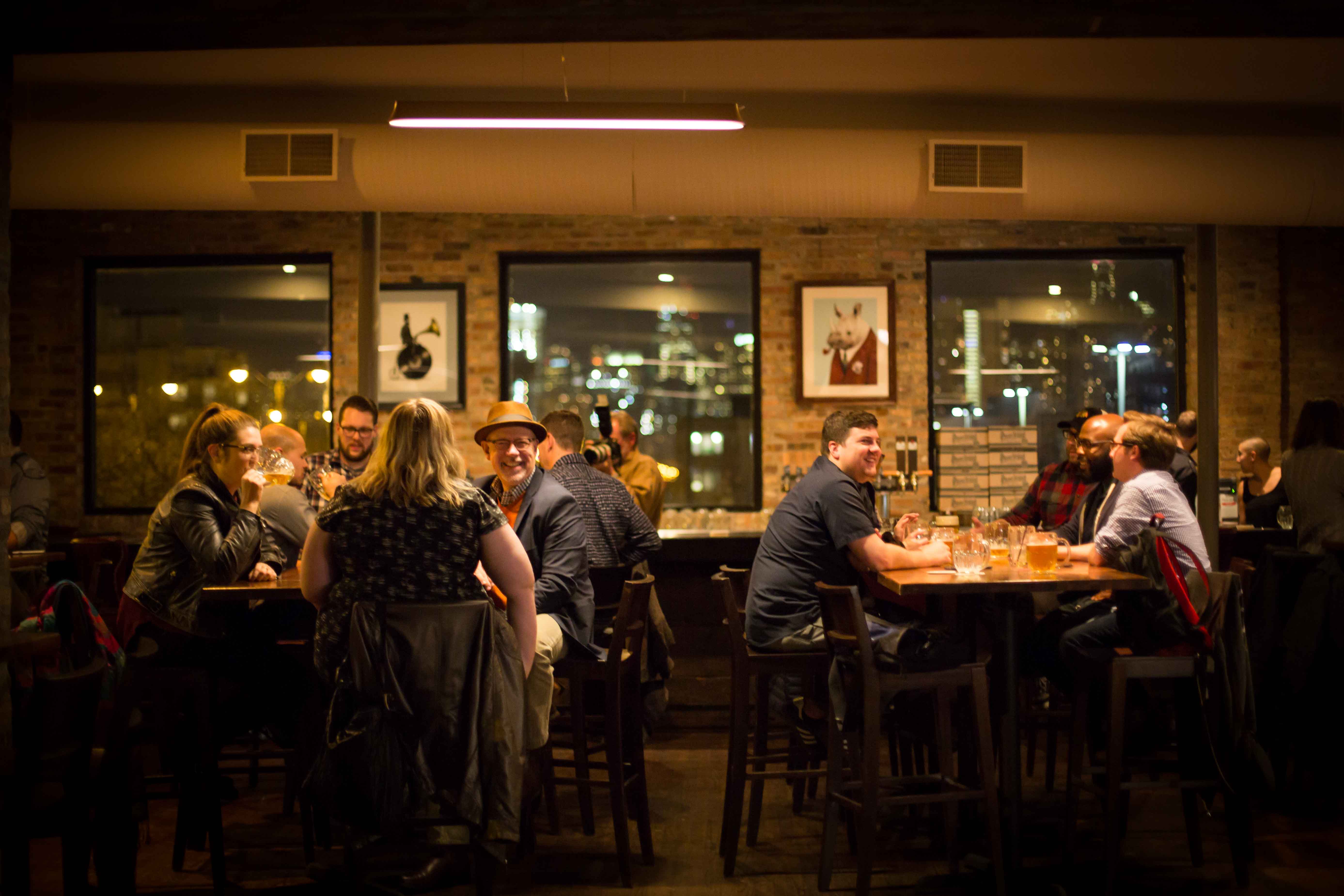
Pilsner Urquell at Kaiser Tiger
Pilsner Urquell unfiltered?!?! WHAT?!?! It happened. At Kaiser Tiger. Here in Chicago. I know. I know! It’ll all be OK. Hold on to your pants.
One chilly November evening a couple weeks back, Evan Rail, beer writer and journalist, presented a small group of beer bloggers and enthusiasts with the history of Pilsner Urquell, along with some anecdotes on how to best enjoy beer, from the Czech perspective (he’s a Californian transplant in Prague, currently). History is great to learn (Urquell was the very first Pilsner beer out of Plzen in 1842), and there was a marked difference between the filtered and unfiltered Pilsner that was pretty fascinating to have the opportunity to identify (aside from the clarity difference, the filtered tasted sweeter, and like a different beer entirely), but what really resonated with me was something Rail said about brand loyalty, which he setup on the foundation of his explanation of what makes bartenders special over in the Czech Republic.
Rail really hammered the point home that a bartender in the Czech Republic isn’t just someone who puts liquid in a glass. Anyone pouring beer in the Czech Republic knows how to cater to three specific pour requests, depending on what the customer wants, or depending on what the customer is pairing with the beer. Bartenders are trained artisans. Having a trained artisan behind the bar makes the entire drinking experience respectful of the beer being served, and this essentially elevates the drinking/consuming experience for the customer.
With bartenders this educated, passionate, and invested in the final product, Rail said that a consumer shouldn’t be completely swayed on what to order simply when they see a brand they recognize. That makes a lot of sense, and it made me think a little more about how I order beer, myself.
I’m extremely brand loyal, but I’m not so sure it’s as one-dimensional as simply liking particular beers because a brewery that I’m a fan of produced it. I think that in the Chicago market specifically, lots of local breweries are partnering with the exact types of bars that understand the type of beer they’re bringing into their establishments, so there’s this unspoken respectful relationship that grows on both sides of the transaction. Kaiser Tiger (for example) will bring in the freshest of beers from local breweries because it’s good beer that their customers will enjoy. They’ll manage their inventory levels appropriately, and they’ll get rid of beer that doesn’t move, so ultimately, their customer isn’t drinking stale beer (Kaiser Tiger’s owner, Pat Berger, tackled the difficult decision to kick one of his own favorite beers off his menu at Paddy Long’s in an open letter to Jim Koch on his blog). When a bar like Kaiser Tiger goes to these measures to ensure that everything in the bar is set-up correctly to serve good beer, customer satisfaction ultimately relies on whether the beer has been brewed well (sure, marketing/brand development plays a role too, but we’ll ignore that factor for the sake of this discussion). This is where brand loyalty is developed – although, after thinking about how important serving, storing, and stocking is in this whole process, I could easily turn this around and say that bar loyalty is just as significant. If there’s a bar that doesn’t serve, store, stock, or move the beer as they should, then one of my favorite beers could taste horrible. I won’t go back to that bar, but I might not drink that beer for a while either. Rail’s talk made me think about the important balance that needs to be attained through the entire distribution process in order to create the best consuming experience. Cheers, Evan.